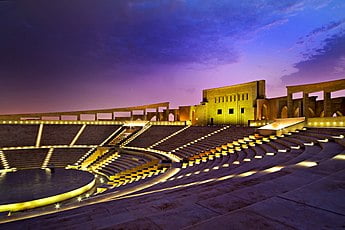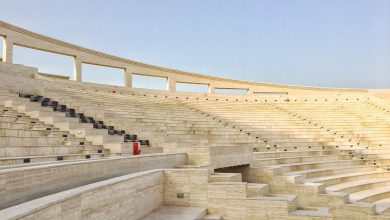Revolution of Qatari Cinema

In Qatar, cinema has sparked a brand-new revolution in pleasure and amusement. People like spending time with their families and friends in the many malls and movie theatres that are available nowadays.
History
In 1960, British documentary filmmaker Rod Baxter shot a video in Doha that details the process of pearl diving, which was at the time one of the primary means of subsistence in the city. The documentary covered several facets of Qatar’s growth and advancements in oil production. The French historian Georges Sadoul stated in his most well-known book, The History of Cinema, that this film can be considered the date of the birth of cinema in the State of Qatar, and it is an opinion shared by the majority of writers and historians of cinema around the world.
Important means of entertainment
The establishment of numerous housing complexes and camps for their employees, as well as a number of private clubs for oil industry workers in the city of Doha, along with the expansion of these companies’ areas of operation, particularly in places like Dukhan and Mesaieed, made cinema the only form of leisure time entertainment at the time. After the people of Qatar experienced it and discovered it to be a previously unheard-of kind of amusement, cinema gradually started to exert its impact, and it was only natural for it to grow. Before the end of the 1950s era, some of the significant members of the populace started bringing special 16 and 8-mm movie projectors to see Egyptian and Indian films in their private councils. A person named Beshara of Lebanese nationality who used to work for Sheikh Nasser bin Khaled was the first to take the initiative to bring film boxes from abroad in 1968
Establishment of cinema
Due to his passion, Sultan bin Saif Al Essa decided to rent a plot of land near the Al Majnoun roundabout’s eastern corner and construct the Al Andalus Cinema hall there. There were several chairs, a screen, and a projector chamber in the open theatre. The establishment of a public shareholding corporation for cinema under the direction and control of the State was requested by a number of prominent Qataris towards the end of the 1960s. The Qatar Cinema Company was founded after a conference of several businessmen took place at Doha Secondary School. To begin, two theatres were bought. The first chairman of its board of directors was HE Sheikh Jassim bin Khalid Al-Thani, and this is how cinema in Qatar got its start. They first started negotiating to buy Amir and Al Andalus cinemas, then Iraqi engineers were brought to design it, and this is how cinema in Qatar got its start.
Early films
The 1967 Qatar TV production Al Shiraa, which centers on the interaction between people and the wild sea and earned the Shalimar Award. In addition to Al-Dana, which received the Best Film Award at the Carthage Film Festival in 1982, also note the 1980 film Diving, one of the most significant films of that time period, which captured the specifics of the diving expedition and the pearl extraction. “Plastic Arts” (1985), is a colorful panorama that follows the career of several plastic art pioneers in Qatar, including Youssef Ahmed, the late Jassim Zaini, Hassan Al Mulla, and others.
Present-day cinema watching
The cinematic viewing movement in Qatar has grown significantly over the past three decades, changing from a vague and passive audience to one that watched international films on the same opening date as their international shows. In the decades, going to the movies has been a typical activity in the city of Doha. It peaked in recent years as several film studios from the area established operations in Doha. The Doha Cinema Institute is committed to fostering film enjoyment, education, and the development of a thriving, globally-focused, regionally-focused film industry in Qatar.






